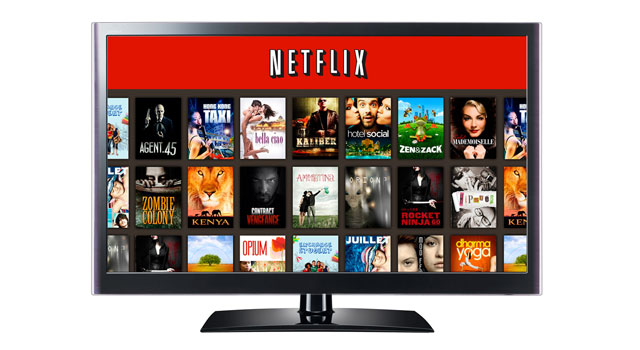
Technology stocks, which outperformed the market in 2015, have had a wobble in 2016, forcing many investors to question whether the high-flying tech sector is facing an implosion of the sort we last saw 16 years ago.
The Fangs — Facebook, Amazon, Netflix and Google — which drove technology gains last year, have faltered. Netflix, which gained 134% last year, is down 16% so far in 2016. Amazon, up 118% in 2015, has lost 17%.
In the richly valued venture capital market, there are also signs that things are slowing down.
According to CIB Insights there are about 150 start-ups that have reached “unicorn” status, valued at $1bn or more. These include the likes of Snapchat, Airbnb, Flipkart, SpaceX, Spotify and Blue Apron. But towards the end of 2015, the tide of venture activity appeared to be subsiding and concerns around the longer-term viability of heavily capitalised start-ups are growing.
So, what does this all mean? Is the tech sector heading into bubble territory?
On one hand, one cannot deny the incredible innovation of these companies. Uber, Airbnb and Facebook are changing the way we live our lives in a way that pets.com (one of the biggest casualties of the dot-com era) never did.
The exponential growth of smartphones has also fundamentally changed the way we buy and sell virtually everything, from groceries to taxi-like services, and created unprecedented disruption along the way.
While online shopping has grown in developed markets, its potential in emerging markets remains largely untapped and is considered a massive opportunity. In this sector, China’s Tencent is a clear leader.

We can’t avoid technology altogether, says Philip Short, investment analyst at Old Mutual Investment Group. “Big data and analytics are technologies to watch — Alphabet and Amazon are getting into this, among others, as are the major Chinese internet firms Baidu, Alibaba and Tencent. Then there is cloud computing which is evolving fast. Alphabet, Amazon and Microsoft are moving quickly to grow their presence here.”
In this space, you need to back companies that are innovative and can adapt quickly, he says. For instance, Tencent was in gaming, then social media, and recently it began investing heavily in mobile payments and the Internet of things. And Alphabet, which started in online search, moved into online video, maps, mobile software, and now even into developing driverless cars. “It is worth noting that there are a multiple of other tech companies; who were once dominant, that have failed to continuously innovate and who have suffered as a result: Yahoo, Myspace, Nokia, Sun Microsystems, Xerox are just a few that come to mind.”
Also, in contrast to the days of the dot-com boom, many tech companies are creating revenue — in some instances, lots of it. The tech sector is forecast to grow earnings by nearly 8% in 2016, on par with the S&P 500, according to FactSet. Tech sales are projected to rise by 4,7%, just slightly better than the S&P’s 4,3% expected uptick.
For those that get in at the beginning, the bubbles are “nice” to invest in, he says. But most investors get in at the end and lose heavily when it bursts
On the other hand, bubbles thrive on innovation, says Kokkie Kooyman, portfolio manager at Denker Capital, somewhat dryly. “Companies that drive change initially get to very silly valuations, as investors struggle to get a handle on exactly what it is that they do. This is even more so in this era where, via instant communications, a new product gets acceptance and status very quickly.”
For those that get in at the beginning, the bubbles are “nice” to invest in, he says. But most investors get in at the end and lose heavily when it bursts.
Forecasting future earnings of technology companies is difficult because technology is constantly evolving, adds Short. Mature companies, like BAT for instance, are easy to forecast. In bear markets, it is the companies with higher-rated price-earnings multiples that will be sold off first, as investors jump off popular bandwagons.
Judging from the sell-off earlier this year, it appears that investors are becoming wary of companies whose businesses are considered long shots or whose stock prices are expensive relative to the market.
Sky-high valuations
Facebook is trading at 34 times forward earnings and 12 times sales and nearly seven times book value, as per FactSet.
Amazon, the world’s biggest online retailer is trading at a whopping 52 times forward earnings, 25 times book value and three times sales, according to Morningstar.
By contrast, tech stocks in the S&P 500 are trading at 19 times forward earnings, nearly three times sales and almost four times book value.
“We don’t own Facebook, Amazon or Netflix precisely because of the stratospheric valuations,” says Anthony Rocchi, portfolio manager at Rexsolom Invest. “But we do own Google (the fourth member of the Fangs). It is still expensive at a 32% premium to our fair value estimation, but that is not uncommon for a growth company.”
Tech companies are not all created equally and the different valuation metrics fall on different companies for a multitude of reasons, says Sasha Naryshkine, portfolio manager at Vestact.
“LinkedIn and Twitter were driven by subscriber growth, and we all know that there is a ceiling to that: next thing, investors turn specifically to earnings to evaluate what the correct price of the stock should be,” he says. For instance, LinkedIn has posted earnings that have disappointed and the share has rerated (downwards) as a result.

Of the Fangs, Netflix is arguably looking a little vulnerable. “Analysts have been revising their earnings for the stock lower throughout 2015, while the price has kept rising. Netflix has seen subscriber growth in the US slow and investors must be banking on global subscriber growth to justify the stock’s rating,” says Rocchi.
On the positive side, Netflix has turned traditional TV on its head. “TV on demand changes the way people consume TV shows. People tend to binge-watch a series over a weekend, which means the entire season needs to be available on release. Netflix is a pioneer in producing content for this format,” says Rocchi.
Facebook has hung onto its valuation because it has posted credible growth and its average revenue per user ($11/user) is almost double that of Twitter. “Zuckerberg is trying to create an ‘alternative Internet’ by positioning Facebook as the go-to launch pad when surfing the Web,” he says.
Similarly, Google has become entrenched in consumers’ daily lives. It remains the indispensable gatekeeper of the Internet, forcing companies to pay top dollar to appear on page one of a related search result.
Alpha bet
The recent name change of the holding company to Alphabet is a clever reference to its future growth strategy, Rocchi says. “Google executives refer to their moonshot-initiatives like the self-driving car and Google X as ‘bets’ while ‘alpha’ is the investment term synonymous with out-performance. Google will remain at the forefront of how technology will change our lives.”
Investors could be forgiven for asking “what is Amazon?”. As an online retailer, Amazon has invested massively in distribution technology, which will shake up retail as we know it. Amazon is huge in the cloud computing space and has a monster fibre business.
Its CEO and largest single shareholder (18%) Jeff Bezos, has forgone making profits over the past decade in order to grow market share.
“Don’t confuse earnings with re-investment in Amazon’s business,” says Naryshkine. “If you strip out investment, you get to about a 25 multiple, which isn’t expensive. They invested $4,6bn in their business last year in fixed assets; $4,9bn the year before that.”
Investors in Amazon need to understand that the company is sacrificing today’s returns to invest further
Amazon is able to grow profits at will by pulling back on its spending, which would unwind the share price’s valuation to something more digestible.
However, investors in Amazon need to understand that the company is sacrificing today’s returns to invest further. “An investment in Amazon has been a real losing investment for many, many years,” says Kooyman. “Had you invested when it listed on the Nasdaq, you will have underperformed compared with many boring companies.”
Despite the high valuations, and the share retreat, there are buying opportunities in the sector. “Follow the philosophy. These companies are usually headed by a visionary. Take time to study the CEO. They need a strong and able manager who usually has voting control in the share structure. The likes of Koos Bekker, Jeff Bezos and Mark Zuckerberg come to mind. I like this — some people don’t.”
The bottom line is that technology shouldn’t be lumped into one segment. IBM is not Amazon. Microsoft is not Apple. Facebook is not Twitter.
- This article was originally published in The Moneyweb Investor and is used here with permission




